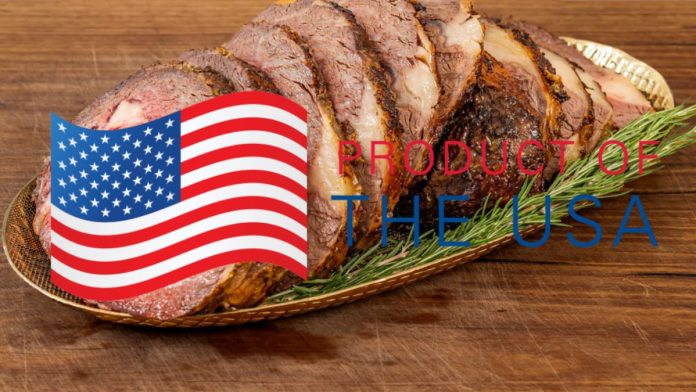News in Brief:
– USDA finalise voluntary “Product of USA” label claim to enhance consumer protection, aligning with consumer understanding and supporting fair competition in the marketplace.
– The agency earmarks $9.5 million to address critical processing infrastructure needs for local and regional livestock producers boosting market efficiency, creating jobs, and supporting local economies.
The United States Department of Agriculture (USDA) has finalised a rule regarding the voluntary “Product of USA” label claim. This announcement, made during the National Farmers Union Annual Convention, signals a significant shift in ensuring transparency for consumers while impacting local farmers directly.
Agriculture Secretary Tom Vilsack emphasised the importance of this rule in reassuring consumers about the authenticity of the “Product of USA” label. With every step, from birth to processing, being conducted within the United States, consumers can now have confidence in the products bearing this label.
Additionally, USDA’s allocation of $9.5 million through the Local Meat Capacity grant program serves to expand processing options for the meat and poultry industry. This initiative directly supports local and regional livestock producers, ensuring their products reach the market efficiently, thus benefiting local economies and creating new job opportunities.
These actions align with President Biden’s initiatives to promote competition in the American economy and foster a fairer, more resilient meat and poultry supply chain. By enforcing transparency and fair competition in the U.S. seed industry, USDA aims to create a level playing field for small- and mid-size farmers, ultimately benefiting consumers and strengthening local and regional food systems.
Highlights of Product of USA label rule
The final rule mandates that the “Product of USA” label claim can only be used on meat, poultry, and egg products that are entirely sourced and processed within the United States. This prohibition of misleading labeling ensures that consumers receive accurate information about the origin of their food.
The rule, supported by stakeholders and consumer feedback, maintains the voluntary nature of the label claim while providing guidelines for compliance. Establishments utilising the claim must adhere to new regulatory requirements by January 1, 2026, with ongoing support and guidance from USDA.
While these regulations enhance consumer protection domestically, concerns have been raised internationally. Canada’s Ministers of Agriculture and Export Promotion express apprehension about potential disruptions to the North American meat and livestock supply chains. They intend to address these concerns during upcoming trilateral meetings with the United States and Mexico.



